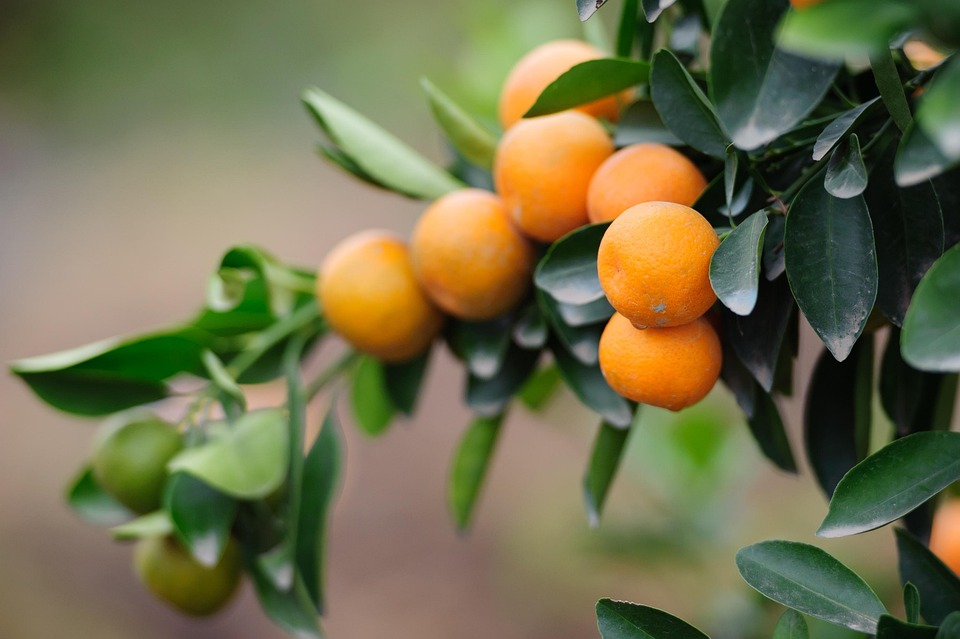# Revolutionizing Farming: The Rise of Sustainable Agriculture
Picture this: the sun peeking over the horizon, a gentle breeze rustling through a lush garden filled with vibrant vegetables and fragrant herbs. Birds chirp cheerfully in the background as the sweet scent of earth fills the air. This is the dream of many who embrace sustainable agriculture, and it’s one that’s gaining traction across the globe. As more people recognize the importance of sustainable practices, the farming landscape is transforming into something more resilient, vibrant, and mindful.
**Understanding Sustainable Agriculture**
Sustainable agriculture is much more than a buzzword; it embodies a progressive approach to farming that balances productivity with environmental stewardship. This methodology prioritizes the health of our ecosystems, promotes social equity, and ensures economic viability. By using techniques that nurture the land rather than deplete it, sustainable agriculture aims to create a farming model that can thrive for generations to come.
### The Shift Towards Sustainability
Historically, farming practices often prioritized short-term gains over long-term health. The introduction of chemical fertilizers and industrial agriculture led to increased yields but at a considerable cost to our soil, water, and biodiversity. However, the tide is turning. Immerging awareness about climate change, dwindling natural resources, and social justice has sparked a revolution in how we approach agriculture.
**Today’s Sustainable Practices**
1. **Permaculture**: This design philosophy mimics natural ecosystems, allowing for a harmonious coexistence between plants, animals, and humans. It integrates crops, livestock, and water management into a cohesive system that maximizes productivity while minimizing waste.
2. **Agroforestry**: Combining agriculture and forestry, agroforestry involves planting trees alongside crops. This not only improves soil health and biodiversity but also creates microclimates that can enhance crop yields.
3. **Regenerative Farming**: Going a step further, regenerative farming focuses on replenishing the soil and enhancing its natural ability to sequester carbon. Techniques like cover cropping, crop rotation, and reduced tillage contribute to overall soil health.
4. **Vertical Farming**: In urban areas where space is a premium, vertical farming is revolutionizing food production. These high-tech setups use controlled environments to grow crops using less land and water, enabling cities to produce their own food sustainably.
5. **Organic Farming**: Certified organic farming avoids synthetic inputs, relying instead on natural processes and materials. This method supports biodiversity and soil health while avoiding chemical contamination.
### Benefits of Sustainable Agriculture
The advantages of embracing sustainable farming practices are far-reaching and beneficial on multiple levels:
#### 1. Environmental Health
– **Biodiversity**: Sustainable practices encourage a variety of crops and livestock, promoting biodiversity that helps ecosystems thrive.
– **Soil Fertility**: Techniques like crop rotation and cover cropping enhance soil nutrients, reducing the need for chemical fertilizers.
– **Water Conservation**: Sustainable farming methods utilize rainwater harvesting and drip irrigation, conserving water resources critical for our future.
#### 2. Economic Viability
– **Lower Costs**: While the initial investment may appear significant, sustainable farming practices often reduce costs over time due to lower input needs and reduced reliance on external resources.
– **New Markets**: The growing demand for organic and locally-sourced produce gives sustainable farmers access to lucrative markets.
#### 3. Community Resilience
– **Food Sovereignty**: Localized food production strengthens community resilience by reducing dependence on imported food and fostering self-sufficiency.
– **Job Creation**: Sustainable agriculture often requires more hands-on practices, leading to increased job opportunities within local communities.
### Pro Tips for Sustainable Farming Success
If you’re considering diving into the world of sustainable agriculture, here are some pro tips to help you get started:
1. **Start Small**: Whether you have a backyard or a community garden, begin with a few crops. Experiment with what grows best in your soil and climate.
2. **Soil Health is Key**: Invest in good composting practices and soil testing. Healthy soil is the foundation of a successful sustainable farm.
3. **Diversify Your Crops**: Growing a variety of plants not only makes your garden more resilient but also protects against pests and diseases.
4. **Connect with Your Community**: Join local agricultural groups or co-ops to share knowledge, resources, and tools. Collaborating can enhance your success.
5. **Experiment with Techniques**: Don’t be afraid to try different sustainable techniques to see what works best for you. Adapt based on the specific needs of your environment.
6. **Educate Yourself**: Sustainability is a continuously evolving field. Stay updated on best practices, listen to expert workshops, and share learnings with others.
### Future of Sustainable Agriculture
The future looks bright for sustainable agriculture. Research is being conducted on innovative techniques like biochar, which enhances soil while sequestering carbon, and aquaponics, a system that combines fish farming with growing crops. Each of these developments promises to revolutionize how we think about food production.
Moreover, consumer demand for sustainability is driving major corporations and governments to pivot towards responsible practices. From supporting local farmers to advocating for policy change, everyone has a part to play in this transformative movement.
### Closing Thoughts
Revolutionizing farming is no longer a distant dream; it’s an urgent reality unfolding before our eyes. By embracing sustainable agriculture, we are not just cultivating our food; we are nurturing our planet and paving the way for future generations. It’s an invitation to rethink our relationship with nature, to innovate, and to create a world that respects both our resources and our communities.
The journey towards sustainable agriculture isn’t just about food; it’s about cultivating a mindset—a commitment to coexistence, where humans and nature work hand in hand. So, whether you’re an experienced farmer or a curious beginner, there’s never been a better time to join this vibrant movement and help revolutionize how we grow our food. Let’s dig in and reap the benefits together!



